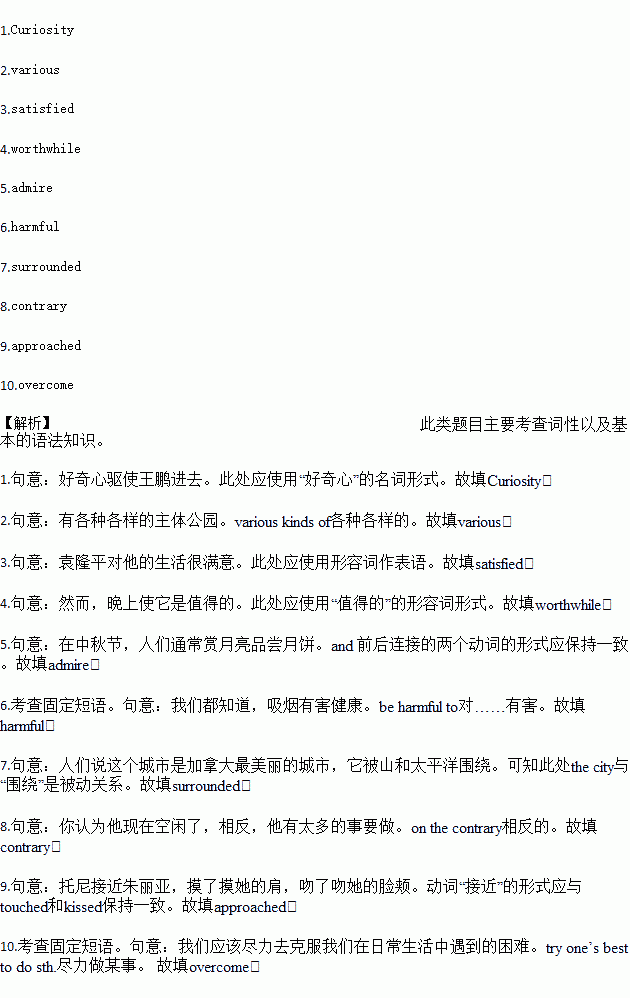题目内容
1.__________________ (好奇心) drove Wang Peng inside.
2.There are v______________ kinds of theme parks.
3.Yuan Long Ping is quite s________________ with his life.
4.However, the evening makes it all ________________ (值得的).
5.In Mid-autumn festival, people usually a______________ the moon and enjoy mooncakes.
6.As we all know, smoking is h______________ to our health.
7.People say it is Canada’s most beautiful city, _________________(包围) by mountains and the Pacific Ocean.
8.You think he is free now; on the c___________, he has so many things to do.
9.Tony ______________(接近) Julia, touched her shoulder and kissed her on the cheek.
10.We should try our best to o_____________ (克服) the difficulties in our daily life.
练习册系列答案
 每日10分钟口算心算速算天天练系列答案
每日10分钟口算心算速算天天练系列答案
相关题目

